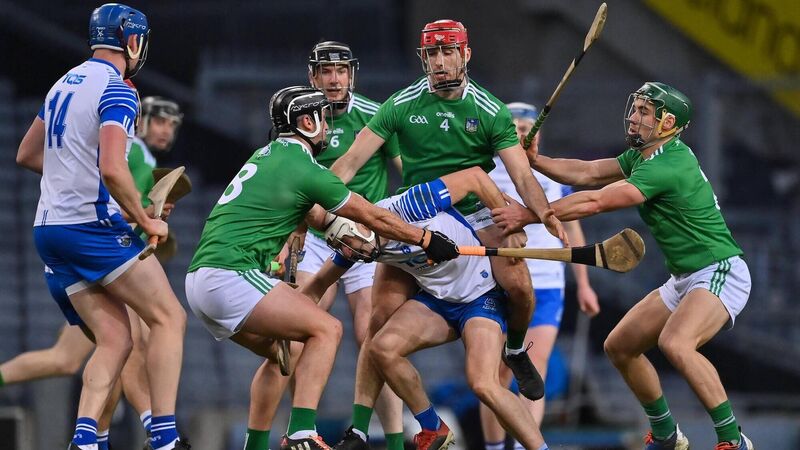Eimear Ryan: The moments I savoured even more after rewatching the All-Ireland final

Dessie Hutchinson of Waterford is tackled by Limerick players, from left, Darragh O'Donovan, Declan Hannon, Barry Nash and Seán Finn during the All-Ireland SHC final. Picture: Brendan Moran/Sportsfile
Something about the festive season lends itself to returning to the old classics. It’s not a time for challenging ourselves or starting the latest overhyped Netflix series; it’s a time for rewatching, for wallowing in the familiar. We want nostalgia, comfort, and most of all, something we can put on the background and not have to worry that we’ll miss crucial plot points while the chaos of Christmas unfolds around us.
In this household – and, I suspect, in most households – the and duologies are must-watches at Christmas. (Are there other movies in these franchises beyond the first two? Perhaps. Do I acknowledge them? I do not.) is essential, as much for the magical Christmassy background music of John Williams’s score as for the entertaining plot. (What does it say about me that I empathise with the bandits – or more specifically, feel their pain – more and more with each passing year? Let’s not dwell on that too much.)








